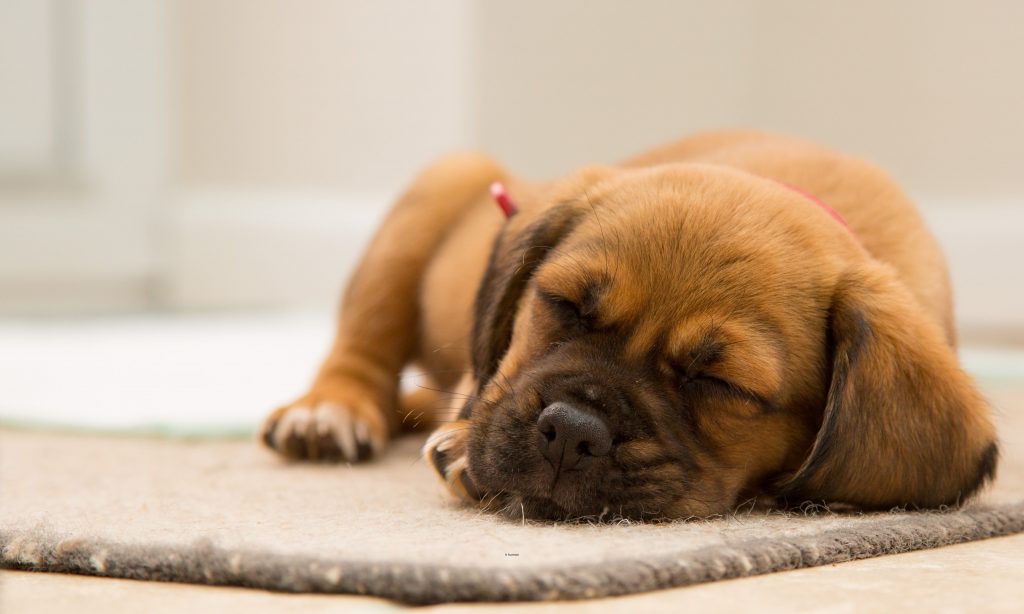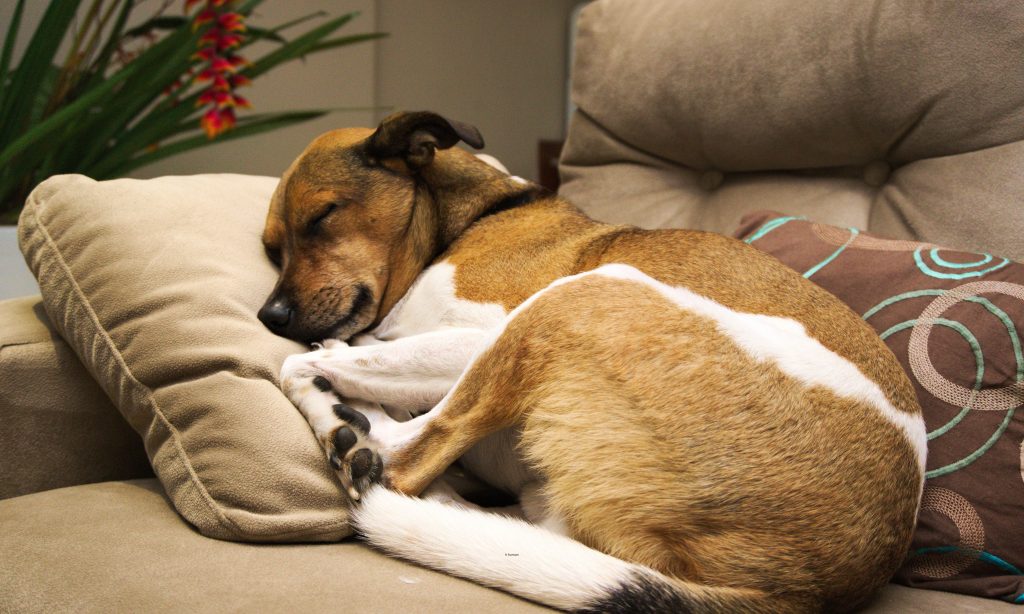The post aims to educate dog owners on the best practices for keeping their puppies comfortable and safe while they sleep at night. The goal is to provide practical tips, strategies, and resources that owners can use to help their puppies adjust to nighttime and provide them with the necessary comfort and security.

Bringing a new puppy into your home is an exciting and joyous occasion, but it can also bring challenges, especially when it comes to bedtime. New puppies are often anxious and uncertain in unfamiliar environments, and they may struggle to settle down and get a good night’s sleep.
As a responsible dog owner, it’s important to ensure that your puppy is comfortable and safe while they sleep at night.
Here are some tips and strategies that can help:
1. Establish a routine
A predictable bedtime routine can help your puppy feel more secure and calm. This can include a potty break, playtime, and cuddles before bed. Stick to this routine every night to help your puppy feel more at ease.
2. Provide a comfortable sleeping environment
Make sure your puppy has a comfortable and safe place to sleep. This can be a crate, a dog bed, or even your own bed, but it’s important to choose a spot that your puppy feels safe and secure in.
3. Consider crate training
Crate training can be a great way to help your puppy feel safe and secure at night. The crate should be large enough for your puppy to move around comfortably, but not so big that they can use one end as a bathroom and the other as a bedroom.
4. Address anxiety
If your puppy is experiencing night anxiety, there are a number of things you can do to help. Consider using a calming diffuser, providing a cozy blanket or toy, or playing calming music before bed.
5. Avoid interruptions
Try to limit distractions and interruptions during the night. Keep your puppy’s sleeping area away from noise and bright lights, and avoid giving them attention or treats during the night, as this can disrupt their sleep patterns.
6. Seek help if needed
If your puppy is having trouble settling down at night, or if you’re experiencing other challenges, it may be helpful to reach out to a professional dog behaviorist. We’re always here to help, so don’t hesitate to chat with us on our website for more information and support.
By taking these steps and providing your puppy with a comfortable and safe sleep environment, you can help them feel more relaxed and confident as they adjust to their new home. Good luck and sweet dreams!
Conclusion:
Ensuring your puppy’s comfort and safety during nighttime is an important part of being a responsible dog owner. By establishing a routine, providing a comfortable sleeping environment, addressing anxiety, avoiding interruptions, and seeking help if needed, you can help your puppy feel more relaxed and secure as they settle into their new home. Remember, a good night’s sleep is essential for your puppy’s physical and emotional well-being, so make sure they have what they need to get the rest they deserve.

Frequently Asked Questions:
What is the best sleeping arrangement for my puppy?
The best sleeping arrangement for your puppy will depend on their individual needs and personality. Some dogs prefer a crate or dog bed, while others feel more secure when they are close to their owner.
How can I help my puppy feel more relaxed and secure at night?
Establishing a routine, providing a comfortable sleeping environment, and avoiding interruptions can help your puppy feel more relaxed and secure at night.
Is it okay to let my puppy sleep in my bed?
Co-sleeping with your puppy is a personal decision and may not be appropriate for all dogs or all families. Consider factors such as your puppy’s size, behavior, and your own comfort level.
How can I address my puppy’s nighttime anxiety?
To address nighttime anxiety, you may need to seek help from a professional dog trainer or behaviorist. You can also try using pheromone sprays, playing calming music, or providing a comfortable blanket or toy.
What should I do if my puppy cries or whines at night?
If your puppy cries or whines at night, it may be due to separation anxiety or discomfort. Try to remain calm and avoid reinforcing negative behavior. You may need to seek help from a professional dog trainer or behaviorist to address the issue.



